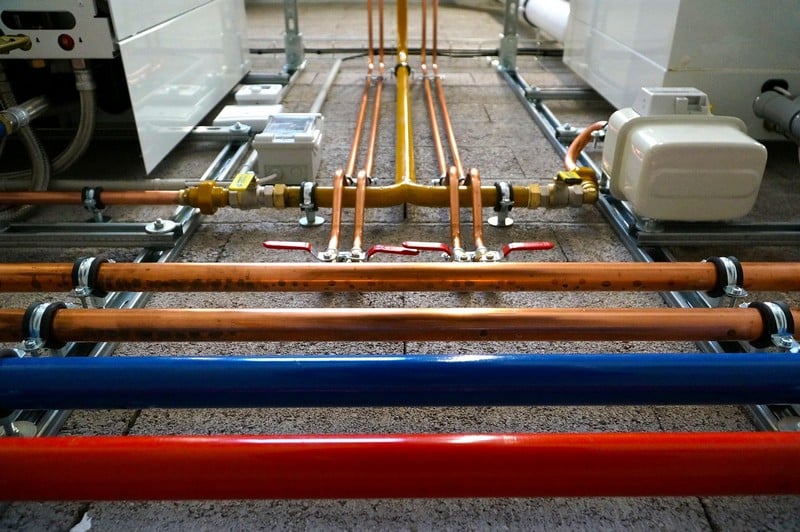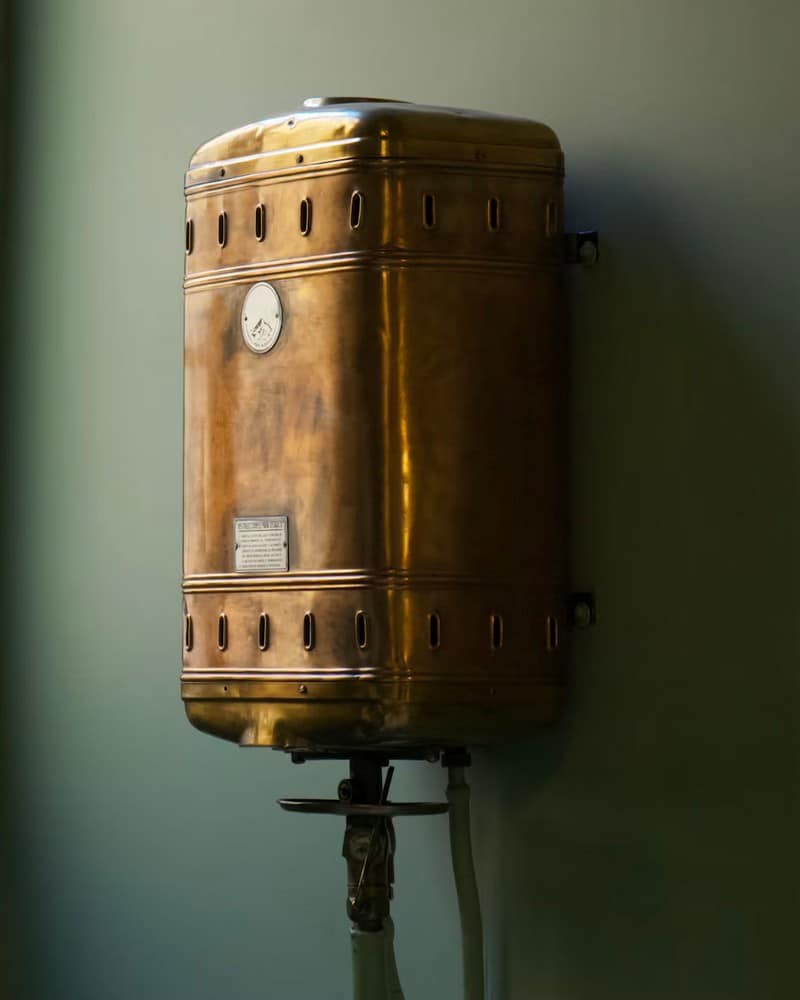Water heaters are appliances in our homes, providing hot water for various daily tasks, from showering to washing dishes and laundry. Their longevity is a matter of convenience and a significant factor in household efficiency and cost-saving.
Regular maintenance of your water heater can prevent costly repairs and replacements, highlighting the importance of implementing an effective care routine. Keep reading to learn more.

The Importance of Regular Maintenance
A well-maintained water heater can boost your home’s efficiency. Regular maintenance identifies potential issues before they escalate, saving homeowners substantial amounts on repair costs. Appliances that are properly maintained last longer. Neglecting maintenance can lead to sediment buildup and corrosion, which decreases the efficiency of the system and can even cause permanent damage.
Repairing or replacing a water heater can incur hefty expenses, with costs ranging from hundreds to thousands of dollars depending on system type and technology. Energy costs are continually rising, so that your water heater operates effectively and keeps energy bills low. Developing a consistent maintenance schedule pays off in both immediate savings and long-term investment protection.
How to Maintain Your Water Heater
Regularly flushing the tank removes sediment that accumulates at the bottom, which can impact efficiency and heating performance. This process should ideally be done at least once a year. Most homeowners can successfully perform this task with just a few tools and a little guidance.
Adjust the thermostat to the appropriate setting. Keeping it at 120°F can reduce energy consumption and lower the risk of scalding. Insulating the tank and pipes can improve energy efficiency and minimize heat loss. To learn more about maintaining your water heater, there are some simple steps worth looking into. A thorough inspection and change of anode rods every three to five years to keep your system functional and efficient for years to come.
Identifying and Addressing Common Problems
Many problems can arise in water heaters, and recognizing these early can help prevent more severe issues. Leaks can be both a sign of wear and a contributor to water damage. Homeowners should regularly inspect the area around their water heater for moisture accumulation. Discolored water can indicate corrosion within the tank, signaling a need for immediate attention.
Strange noises stem from sediment buildup affecting performance. Homeowners can guarantee smaller problems don’t develop into emergencies. DIY diagnostics can be helpful, yet complications may necessitate professional evaluation to accurately identify the cause and source of any malfunction.
The Role of Professional Maintenance Services
Many maintenance tasks can be completed by the homeowner. Professionals possess the knowledge and tools to assess the unit’s health thoroughly so that all components are in optimal condition. Annual professional inspections can identify underlying issues that may not be obvious to the untrained eye.
Technicians can offer advice tailored to a specific system and provide services such as pressure relief valve testing and insulation checks. They have access to advanced diagnostic tools that help pinpoint problems quickly and accurately. By relying on professionals, homeowners can be assured that any maintenance or repairs will meet industry standards, improving safety and extending the appliance’s lifespan. Combining DIY care with professional evaluations creates a well-rounded approach to water heater maintenance.
Understanding Water Heater Lifespan
The average lifespan of a water heater varies depending on the type of unit. Traditional tank water heaters last about 10 to 15 years, whereas tankless variants can extend up to 20 years or more with proper care. Understanding this lifespan helps homeowners plan for eventual replacements and avoid abrupt service interruptions.
Many factors influence the longevity of a water heater, including installation quality, water quality, and maintenance frequency. Hard water can create more problems due to mineral buildup, which may accelerate wear and tear on components. Regular professional inspections can disclose such issues, helping homeowners take proactive measures. Knowing when to replace a water heater maintains household efficiency and comfort and requires ongoing diligence in monitoring performance indicators.
Cost Savings of Regular Maintenance
Investing in regular maintenance can lead to considerable cost savings. Higher energy efficiency translates to lower monthly utility bills, with well-maintained water heaters using substantially less energy than those suffering from neglect. According to the U.S. Department of Energy, a poorly maintained water heater can waste anywhere from 10% to 50% more energy, illustrating the financial impact of overlooked maintenance.
By catching issues early, homeowners can prevent more costly repairs from developing later. Homes that are maintained properly experience fewer frequent outages and emergencies. This reliability tends to bring peace of mind and contribute to household satisfaction. The initial expense of setting up a maintenance regimen pales in comparison to the financial burden posed by emergency repairs or early appliance replacement, making a routine inspection and maintenance a smart economic decision.
Environmental Benefits of Efficient Water Heaters
The environmental impact of water heaters cannot be ignored. Well-maintained units operate more efficiently, reducing the carbon footprint associated with energy consumption. The transportation of energy sources to homes and their subsequent use contributes to greenhouse gas emissions. When your water heater operates at peak efficiency through regular maintenance, you can minimize unnecessary energy use. This conscientious use of resources can tackle broader environmental issues such as climate change.
The wastewater generated during heating processes can be minimized through effective maintenance and operational efficiency. Many homeowners are aware of their environmental responsibilities, making efficient water heaters a priority in their sustainable living efforts. By actively maintaining these systems, a positive environmental impact is feasible and contributes to a healthier planet for future generations.
Seasonal Maintenance Tips for Optimal Performance
Seasonal changes affect how your water heater operates. In colder months, water entering the tank is colder, requiring more energy to heat. Insulating the tank and pipes during winter can reduce heat loss and improve efficiency. Check the thermostat setting to prevent overcompensation and overheating.
During the summer, sediment buildup from increased water usage can become more pronounced. Flushing the tank at the end of the season resets the system and maintains heating performance. Fall is ideal for scheduling a professional inspection so that the unit is ready for increased demand in winter. A consistent seasonal routine extends the unit’s life and provides a reliable access to hot water regardless of outside temperatures.

The maintenance of your water heater is a practice for preserving the appliance, improving energy efficiency, and saving costs in the long run. By routinely inspecting and addressing potential issues, employing professional services, and understanding the operational life of your system, you can enjoy hot water without interruptions. Regular maintenance pays off in performance and benefits your budget and the environment.








